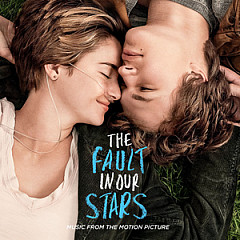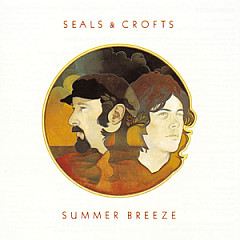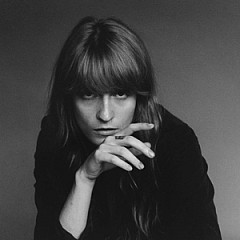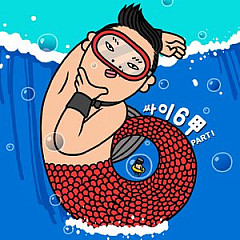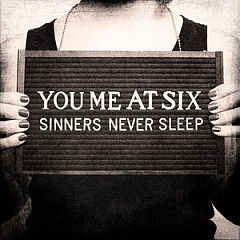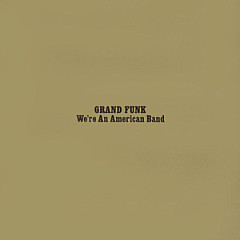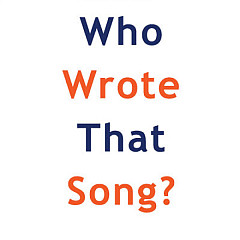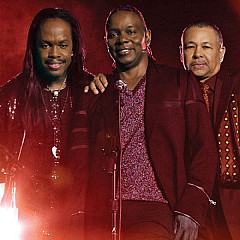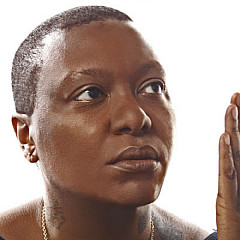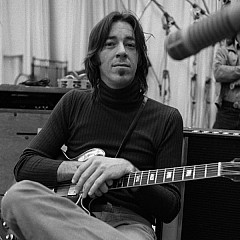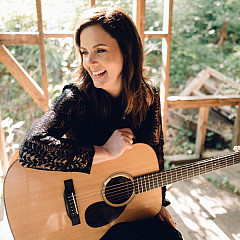Little Richard wrote this song in 1955 when he was working as a dishwasher at a Greyhound bus station in his hometown of Macon, Georgia. Explaining how he came up with the song, he told
Rolling Stone: "I couldn't talk back to my boss man. He would bring all these pots back for me to wash, and one day I said, 'I've got to do something to stop this man bringing back all these pots to me to wash,' and I said, 'Awap bop a lup bop a wop bam boom, take 'em out!' and that's what I meant at the time. And so I wrote 'Tutti Frutti' in the kitchen, I wrote '
Good Golly Miss Molly' in the kitchen, I wrote '
Long Tall Sally' in that kitchen."
Richard says that "Awap bop a lup bop a wop bam boom" was kind of his catch phrase, something he would reply to folks who asked him how he was doing.
Long before Richard recorded this, he performed it at his shows as "Tutti Frutti, Good Booty." It was a very raucous and sexual song and was considered too suggestive for white audiences, so it was cleaned up considerably when he recorded it for Specialty Records. The chorus was changed to "Tutti Frutti, aw Rudi," and these original lyrics were replaced:
If it's tight, it's alright
If it's greasy, it makes it easy
Some sources have claimed that Richard also sang "A good God damn" instead of "a wop bam boom," but according to the notes in the 2012 reissue of the album, Richard (who later became a minister) never took the Lord's name in vain and never sang that lyric.
This was Little Richard's first hit, but his success was far from instant. His first recordings were in 1952 for RCA Records, and were failures. He moved to Peacock Records the next year and released some singles with the Johnny Otis Trio backing him up. His break came when the singer Lloyd Price played a show in Macon, Georgia, and Richard, who was selling drinks at the gig, went to the dressing room and played Price "Tutti Frutti" on the piano.
Price encouraged Richard to send a tape to Specialty Records, so he sent them a demo of two songs he recorded in February 1955 with his group The Upsetters: "Baby" and "All Night Long." Specialty owner Art Rupe was unimpressed, but Richard kept calling and sending letters.
His persistence paid off and Rupe finally sent his producer Bumps Blackwell to New Orleans, where on September 13 and 14, they recorded the nine songs that would comprise the
Here's Little Richard album. "Tutti Frutti" was released as a single and became a breakout hit, which Richard found out when the record company called him in Georgia to explain. They flew him to Hollywood and had him record follow-up singles "
Long Tall Sally" and "Slippin' and Slidin'."
This was the last song recorded for the album, and it barely made it. The first eight tracks Richard put down were blues numbers which weren't wowing his producer Bumps Blackwell, who took a break and brought Richard to a local bar called the Dew Drop Inn. Richard, feeling more relaxed with an audience to play for, sat down at a piano in the bar and started playing his live favorite "Tutti Frutti." This got Blackwell's attention, and he insisted that Richard record the song.
Of course, the original racy lyrics about "good booty" had to be replaced, and Little Richard had no particular talent for writing words that would match his melody yet mollify a white audience. This task fell to Dorothy LaBostrie, who Blackwell described as "a girl who kept hanging around the studio to sell songs." She was on hand because Richard recorded her song "I'm Just A Lonely Guy" earlier that day. With time running out in the session, an embarrassed Richard sang her the raunchy lyrics, looking at the wall while he did so. LaBostrie left and came back with the sanitized lyrics with just 15 minutes of studio time remaining. They quickly recorded the song, getting it right on the third take with two minutes to spare. Dorothy LaBostrie earned what became a very lucrative writing credit for her efforts.
This song introduced Little Richard's famous "Whooooo," and also a big "Aaaaaaahhh" scream which he sings just before the tenor sax solo performed by Lee Allen. Richard's scream had a practical purpose: to let Allen know when to start playing. They were recording on just three tracks, so overdubbing the horns wasn't a practical option.
You can also hear Richard's classic line in this song, "A wop bop a lu bop, a wop bam boom!" He felt you could express your emotions without singing actual words. He would also put a little something extra into the words he sang, which he called "that thing." It was something he learned playing piano and singing in church, and it was a style that would influence the next generation of rock music.
-
This is one of the most famous songs of all time, making #43 on
Rolling Stone magazine's list of the 500 Greatest Songs, but it was not a huge hit, going to #2 on the R&B charts and reaching just #17 on the Hot 100.
Pat Boone fared better with his 1956 cover, taking it to #12. Boone had a long career doing sanitized covers of songs by black artists, and he also covered Richard's "Long Tall Sally." Many listeners at the time only knew the song through Boone, so Little Richard's promotional materials often labeled him "Original 'Tutti Frutti' Man."
Boone changed some of the lyrics, so "Boy you don't know what she's doing to me" became "Pretty little Susie is the girl for me."
"The kids didn't care - they didn't know," he said in a
Songfacts interview. Boone went on to explain that Little Richard was grateful for the exposure, as he introduced the song to a white audience.
Like "Long Tall Sally," this song was covered by Elvis. Little Richard once said, "Elvis may be the King of Rock and Roll, but I am the Queen."
>>
Suggestion credit:
Brett - Edmonton, Canada
Little Richard did not invent the name "Tutti Frutti"; it was a popular flavor of ice cream. The phrase is Italian for "All Fruits," and the ice cream had little bits of candied fruit mixed in. In 1938, the Jazz duo Slim Gaillard and Slam Stewart, who recorded as Slim And Slam, released a popular song called "Tutti Frutti," which was about the ice cream. Little Richard's was a completely different song.
Little Richard recorded this at J&M Studios in New Orleans, which was the only place to record in the city for many years. Opened in the late '40s, Ray Charles, Sam Cooke and Jerry Lee Lewis recorded there as well. It has since become a laundromat.
>>
Suggestion credit:
Bertrand - Paris, France
Huey "Piano" Smith played the piano on the first eight songs during the session that produced this album, but he didn't have time to learn "Tutti Frutti" so Richard played it himself. The drummer on the session was Earl Palmer, who later moved to Los Angeles and became one of the most prolific drummers of all time, playing on songs by the Righteous Brothers, Elvis Costello, B.B. King and hundreds of others. On this song, Palmer had no rehearsal and Richard was pounding out a rock rhythm on the piano.
Palmer later explained, "The only reason I started playing what they come to call a Rock and Roll beat was came from trying to match Richard's right hand - with Richard pounding the piano wih all ten fingers, you couldn't so very well go against that. I did at first - on 'Tutti Frutti you can hear me playing a shuffle. Listening to it now, it's easy to hear I should have been playing that rock beat." (From
Backbeat: Earl Palmer's Story.)
This song was a huge influence on many aspiring rock stars, but it had special significance for David Bowie, as it was the first rock song he heard. Bowie's father, who ran a London music hall, brought the record home when David was 9 years old. "My heart nearly burst with excitement," said Bowie. "I had heard God."
Little Richard told Mojo in 1999: "My greatest achievement would have to be 'Tutti Frutti.' It took me out of the kitchen - I was a dishwasher at the Greyhound bus station, making $10 a week working 12 hours a day, and 'Tutti Frutti' was a blessin' and a lesson. I thank God for 'Tutti Frutti'."
Charles Connor, Little Richard's drummer in the 1950s and 60s told Uncut magazine the rock 'n' roll star took his "Awap bop a lup bop a wop bam boom" catch phrase from his drums. "Richard called me about a month and a half before he passed, and we talked for a long time," Connor added. "He said, 'Charles, thanks for helping me create my style of singing.' He called us the architects of rock and roll, but I said I was the bricklayer, laying the foundation of the rhythm for him."
On Queen's last tour with Freddie Mercury (in 1986), they included this song in their setlist along with another '50s favorite, "
Hello Mary Lou" by Ricky Nelson.
In the 2022 biopic Elvis, Presley (Austin Butler) watches the up-and-coming rock and roller perform this at a club. Although Alton Mason portrays Little Richard, he doesn't do the singing. The voice belongs to Les Greene, whose band Patrick and the Swayzees competed on American Idol in 2018.

